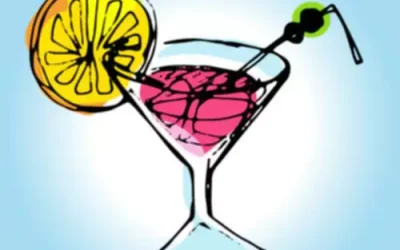Content
Additional research has shown that alcoholism is more likely among individuals whose parents abuse alcohol, but this doesn’t necessarily mean that alcoholism and genetics are always to blame. For instance, parental alcohol abuse can be linked to other adverse circumstances, such as abuse, neglect and poverty. These difficult situations may lead children to use substances to cope.
Given the lack of current treatment options for substance use disorder, the researchers also conducted analyses of a publicly available drug database to identify potential new treatments for substance abuse. Won, assistant professor of genetics and member of the UNC Neuroscience Center, and colleagues identified genes linked to cigarette smoking and drinking. The researchers found that these genes are over-represented in certain kinds of neurons – brain cells that trigger other cells to send chemical signals throughout the brain.
You Are More Than Your Genetic Makeup
This review supports what most people knew all along—alcoholism, to some extent, runs in the family. People with enzyme variants that allow for the fast buildup of acetaldehyde from alcohol (ethanol) https://ecosoberhouse.com/ are at less risk for addiction compared to those who metabolize alcohol efficiently to acetate. This is because people with acetaldehyde buildup are more likely to have troublesome reactions.

A study was done in which scientists selectively bred two strains of mice. The study included mice that were not genetically sensitive to alcohol and those that were acutely sensitive to it. The two strains showed dramatically different behavior when exposed to identical amounts of alcohol. The ability to genetically select for these traits shows that there are genetic bases for them.
Genes vs. Environment
” and will instead have healthy lifestyle examples in front of them. The risk of alcoholism is higher for children coming from fractured homes like ones with the above problems. But these kids are not guaranteed to become heavy drinkers is alcohol abuse hereditary by hereditary alcoholism. If they become alcoholics, it is of their own personal choices and not heredity. Is alcoholism genetic is a question many families ask after seeing one or more family members spiral in addiction.
A dual diagnosis (or a diagnosis of two or more co-occurring disorders) is a precipitous, dangerous situation where alcohol use and mental health issues are prone to exacerbate one another. There is a distinct link between substance abuse problems and mental health issues such as anxiety, bipolar disorder, and depression. In the 1940s, Alcoholics Anonymous (AA) was founded, and one of its main premises is that individuals are not in control of their drinking. Research into alcoholism and its genetic and potential heritability has been ongoing for decades since then. Research shows that genes are responsible for about half of the risk for AUD.
Narcan Is Now FDA-Approved as an Over-the-Counter Medicine
He currently is developing a podcast that will highlight the outstanding research, education and clinical care underway at the School of Medicine. Jim has a bachelor’s degree in English literature from the University of Missouri-St. Washington University School of Medicine’s 1,500 faculty physicians also are the medical staff of Barnes-Jewish and St. Louis Children’s hospitals.
- In addition, NIAAA funds investigators’ research in this important field, and also has an in-house research emphasis on the interaction of genes and the environment.
- If you worry about hereditary alcoholism, you need to pay particular attention to the “right choices” in drinking.
- This makes them less sensitive to it, and they will often pursue more intense experiences in order to feel it.
- A key aspect of the new study is that it included genetic data from people of European (46,568) and African (6,280) ancestry.
Also, behavioral genes influence your tendency for destructive behavior. Mental illness is also common in people with alcohol use disorder because they use alcohol to cope. If your family has a history of mental health issues, then those genes further increase your risk for alcoholism.
Try A Digital Support Group
A lack of naturally occurring endorphins is hereditary and can contribute to alcoholism. NIAAA has funded the Collaborative Studies on Genetics of Alcoholism (COGA) since 1989, with the goal of identifying the specific genes that influence alcohol use disorder. In addition, NIAAA funds investigators’ research in this important field, and also has an in-house research emphasis on the interaction of genes and the environment.
- The researchers also found that the genetic factors related to simply drinking alcohol were a little different from the genetic factors that contributed to alcohol dependence.
- Trauma, dual diagnosis, and underlying conditions feed alcoholism and the alcoholism feeds those problems, in return.
- While research shows that there is a family connection to alcoholism, there are certain factors that lead to greater risk.
- Sharing your experiences and listening to theirs could help you avoid alcohol abuse.
- Before this groundbreaking study, studies showed that alcohol abuse runs in families, but it could not point to the genetic basis of this finding.
When a person drinks alcohol, several of the brain’s neurotransmitters, or chemical messengers that help to regulate mood and central nervous system functions, are affected. Addiction is also classified as a behavioral disease with social implications. As a complex disease, alcoholism has many potential contributing factors, including genetics. NIAAA reports that around half of the risk of alcoholism can be linked to genetics, meaning that the disease is considered to be at least partially hereditary and can run in families. This does not mean that just because you have a parent or sibling who struggles with alcoholism, you will, too. It just means that there may be certain risk factors, or genes, involved.
The Genetics of Alcohol Use Disorder
Yet studies have shown that certain combinations of genes have a strong relationship to alcoholism. Alcoholism is a complex disease influenced by many factors, including genes; however, you are not your genes. You can take control of your life and seek help if you are struggling with alcohol addiction in Massachusetts. Our team at Meta Addiction Treatment in Massachusetts understands what you are going through and can help you overcome it. Most people have a family history of some alcohol abuse, if not full-fledged addiction. While research shows that there is a family connection to alcoholism, there are certain factors that lead to greater risk.
